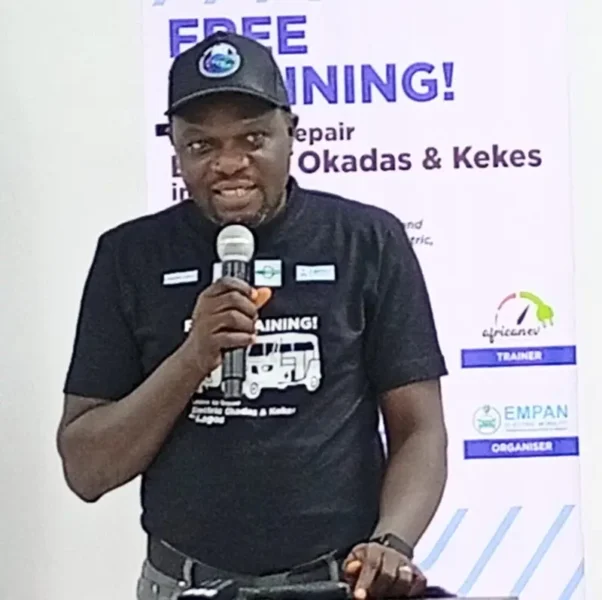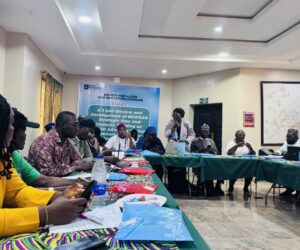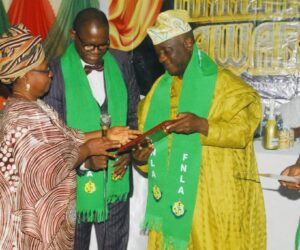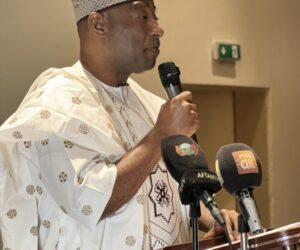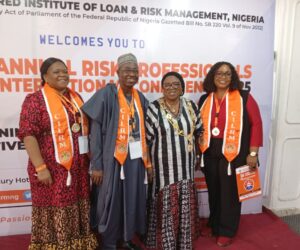By Florence Onuegbu
The Electric Mobility Promoters Association of Nigeria (EMPAN) says it is training 60 mechanics for Electric Vehicle (EV) repairs and maintenance.
The President of EMPAN, Mr Dapo Adesina, made this known at the ongoing Electric Vehicle (EV) training for roadside mechanics in Lagos.
Adesina explained that the training, which would run for six days, involved two cohorts, each of which would be trained for three days, while the graduation ceremony would hold on Saturday.
He added that the training included both practical and theoretical elements of dealing with the repair and maintenance of electric tricycles and motorcycles.
“One of the challenges of adopting the use of electric vehicles in Nigeria is capacity building; to have the capacity for the technical people to handle it.
“That is why one of our major objectives at EMPAN is to fill in the gap; to be able to provide support in terms of training.
“We are training about 60 roadside mechanics in two and three wheeler, that is the Keke and the Okadas; that will be competent enough to handle the repairs and maintenance of those electric vehicles.
“So that is capacity; we need to build it, and that is what we are doing in this ecosystem,” the president said.
According to him, electric vehicles and their mobility are eco-friendly because they eliminate tailpipe emissions, reducing harmful pollutants like CO2 and CO released into the atmosphere.
He noted that another advantage is the significant reduction in noise pollution, as electric vehicles operated much quieter than conventional vehicles.
Adesina, however, said that the challenges for the adoption of electric vehicles included high cost of acquisition, charging infrastructure, high import duties, myths and misconceptions about electric vehicles, among other reasons.
He also said that Nigeria’s weak grid system and low power generation further complicated the adoption of electric mobility.
He proposed innovative solutions, such as personal power plants and solar systems, to overcome the charging infrastructure challenge.
Mr Sebastian Gruss, the Project Manager, Social Entrepreneurship at Siemens Stiftung, emphasised the importance of collaboration to support the transition to electric mobility.
Gruss said that Siemens Foundation would continue to support local entrepreneurs and solutions toward boosting Nigeria’s economy.
Mr Gad Ashiagbor, Executive Director at Africanev and one of the trainers, stated that electric vehicles make up just one per cent of vehicles in Nigeria.
Ashiagbor emphasised the need for government policies to promote the adoption of electric vehicles in Nigeria. (NAN)(www.nannews.ng)
Edited by Yetunde Fatungase

